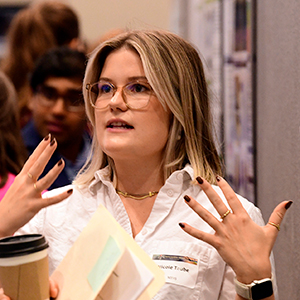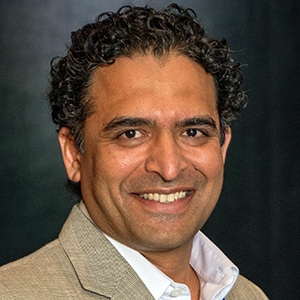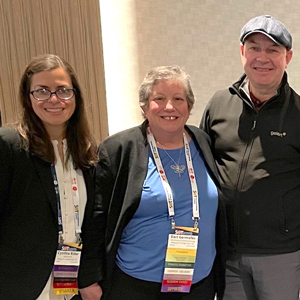Three women, all scientists in the NIEHS Division of the National Toxicology Program (DNTP), have been elected to leadership positions in prominent scientific organizations. March is Women’s History Month, and a great time to highlight their achievements.
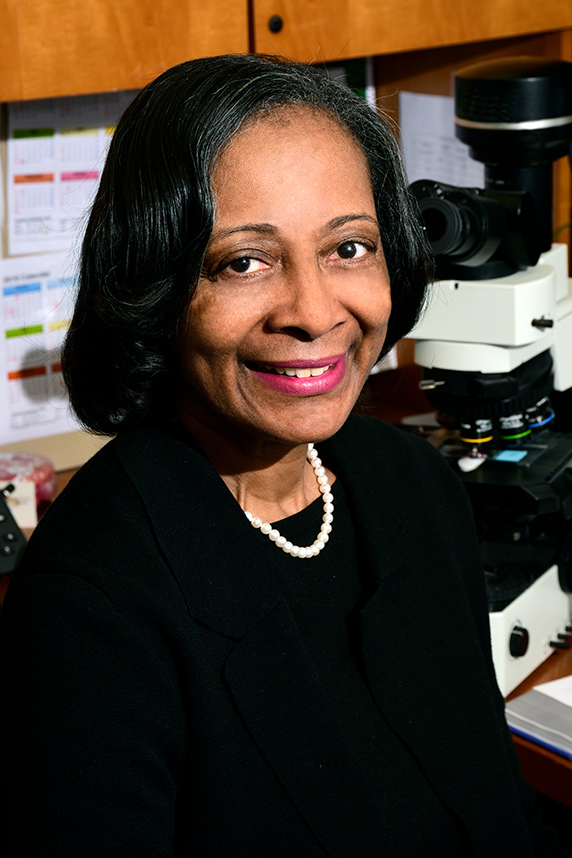 After a year as president-elect, Dixon will step into service as president of STP. (Photo courtesy of Steve McCaw / NIEHS)
After a year as president-elect, Dixon will step into service as president of STP. (Photo courtesy of Steve McCaw / NIEHS)- Darlene Dixon, D.V.M., Ph.D., head of the DNTP Molecular Pathogenesis Group, is the new president-elect of the Society of Toxicologic Pathology (STP).
- Dori Germolec, Ph.D., head of the DNTP Systems Toxicology Group, is the new vice president-elect of the Society of Toxicology (SOT; see sidebar).
- Angela King-Herbert, D.V.M., head of the DNTP Laboratory Animal Medicine Group, was elected vice-president of the American College of Laboratory Animal Medicine (ACLAM) in August 2020.
Breaking new ground their organizations, each scientist is in line for the presidency of her group.
“This is a significant testimony to the global reputation of these women and the NTP,” said DNTP Scientific Director Brian Berridge, D.V.M., Ph.D. “It’s a momentous achievement.”
Toxicologic pathology
“I am honored to have been elected to serve as future president of the STP and look forward to advancing the mission, vision, and goals of the society and working with all of the members and EC [Executive Committee] of the society to do so,” said Dixon. She is not waiting until her term as president-elect begins in July to establish priorities, among which are continuing the society’s strong educational outreach mission.
 Sills oversees an array of programs in toxicologic pathology and laboratory animal medicine. (Photo courtesy of Steve McCaw / NIEHS)
Sills oversees an array of programs in toxicologic pathology and laboratory animal medicine. (Photo courtesy of Steve McCaw / NIEHS)“It speaks to Darlene’s leadership, her selfless mentorship of so many, and the respect for her in the scientific community that she is honored as the first woman of color to serve as president-elect of the Society of Toxicologic Pathology,” said Dixon’s supervisor Robert Sills, D.V.M., Ph.D. Sills heads the Cellular and Molecular Pathology Branch.
“The COVID-19 pandemic has forced the world to engage differently and has created opportunities for more virtual and web-based interactions,” Dixon said. “I will encourage the leverage of these virtual advances in planning and executing future STP meetings and activities, and in facilitating interactions with outside organizations.”
Dixon said she is also committed to encouraging the use of scientific sessions, forums, and papers to notify STP membership of emerging technologies and their use in risk assessment. Such knowledge may also inform recommendations for regulating new approach methodologies in toxicology testing to help predict hazards and risks to human health.
STP provides expert guidance to legislative and regulatory decision-makers regarding toxicologic pathology data and health, Dixon explained. She further noted that these activities fit well with the NIEHS mission to discover how the environment affects people in order to promote healthier lives, as well as the institute’s vision to provide global leadership for innovative research that improves public health by preventing disease and disability.
Among other NIEHS scientists who served at the helm of STP, the most recent is Sills, in 2012-2013.
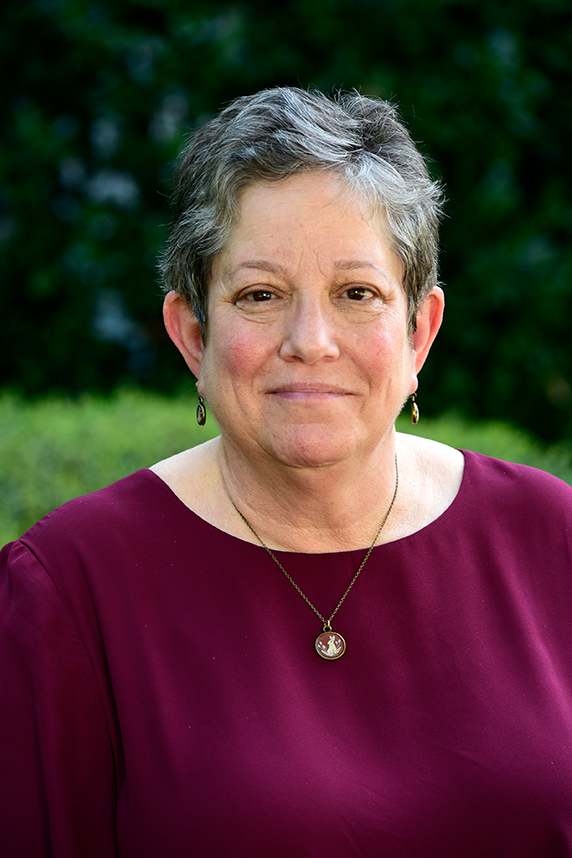 Germolec has a specific interest in autoimmune diseases, which can be influenced by environmental exposures. (Photo courtesy of Steve McCaw / NIEHS)
Germolec has a specific interest in autoimmune diseases, which can be influenced by environmental exposures. (Photo courtesy of Steve McCaw / NIEHS)Society of Toxicology
Germolec is the incoming vice president-elect of the Society of Toxicology (SOT), and through the chain of succession will serve as president in two years. Germolec leads DNTP immunology research.
Nigel Walker, Ph.D., acting head of the DNTP Toxicology Branch, heralded Germolec’s election. She will be the first current DNTP scientist and NIEHS staff member to lead the largest international association of toxicologists, with more than 8,000 members.
“I appreciate this support and vote of confidence from my colleagues here at NIEHS and in the wider toxicology community,” said Germolec. “One of the mainstays of my career at NIEHS has been the concept of public service. The public is our most important stakeholder, and that sentiment aligns with the missions of both NIEHS and SOT.”
As vice-president elect, Germolec will serve on the program committee for the SOT annual meeting, which typically draws more than 6,000 attendees from around the world.
Through interactions with volunteer groups in her community, Germolec has seen how members of the public lack clear understanding of risk. “People often don’t realize that they make risk decisions every day, and we need to communicate this more effectively in the face of challenging events such as the pandemic,” she said.
One of Germolec’s goals is to harness the power of SOT to communicate information on public health concerns. “People need to know which risks they can control and which they cannot,” she said. SOT can provide a valuable platform for reducing human health risks by supporting scientific innovations that could lead to safer and more effective products.
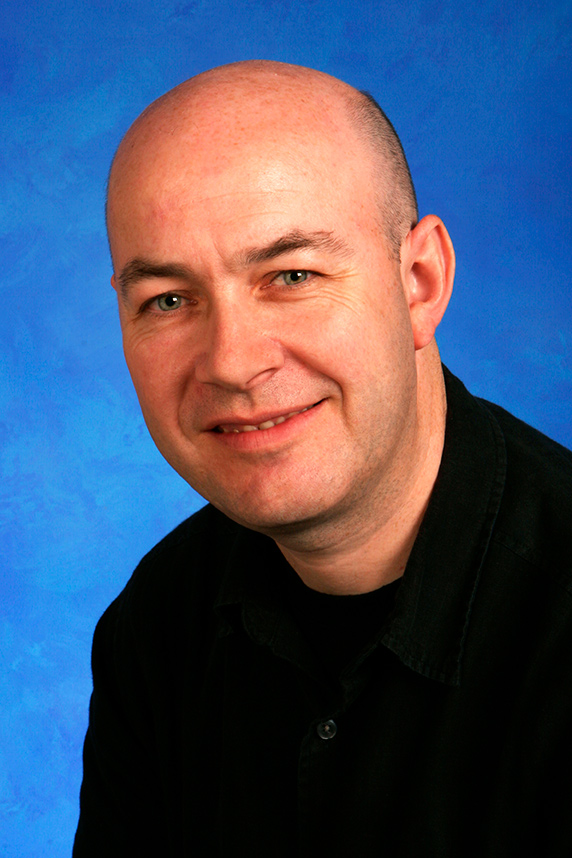 Walker oversees DNTP systems toxicology research to assess the potential of substances in the environment to harm human health. (Photo courtesy of Steve McCaw / NIEHS)
Walker oversees DNTP systems toxicology research to assess the potential of substances in the environment to harm human health. (Photo courtesy of Steve McCaw / NIEHS)“We need to foster the use of novel techniques and applications, as well as integrate knowledge from basic and clinical science, to lessen the burden of disease and environmental damage caused by human activity,” said Germolec.
Laboratory animal medicine
King-Herbert was elected vice president of ACLAM last summer. Through the chain of succession, she will become president in 2022.
“ACLAM promotes the training, education, and experience of laboratory animal veterinarians, who play a major role in ensuring the ethical care, health, and welfare of all research models,” King-Herbert explained. She was first elected to the group's board in 2017.
At NIEHS, King-Herbert oversees DNTP use of laboratory animal models. By working with scientists, and contract laboratories and their veterinarians, she ensures all aspects of the animals’ welfare.
'The use of research models is one of the important aspects of NIEHS’s mission to improve public health and promote healthier lives,' she said.
“It is a privilege to serve ACLAM in this capacity,” King-Herbert continued. “I am dedicated to the ACLAM mission, and serving in a leadership role allows me to fully engage in and promote our activities, and represent the laboratory animal medicine community as a whole.
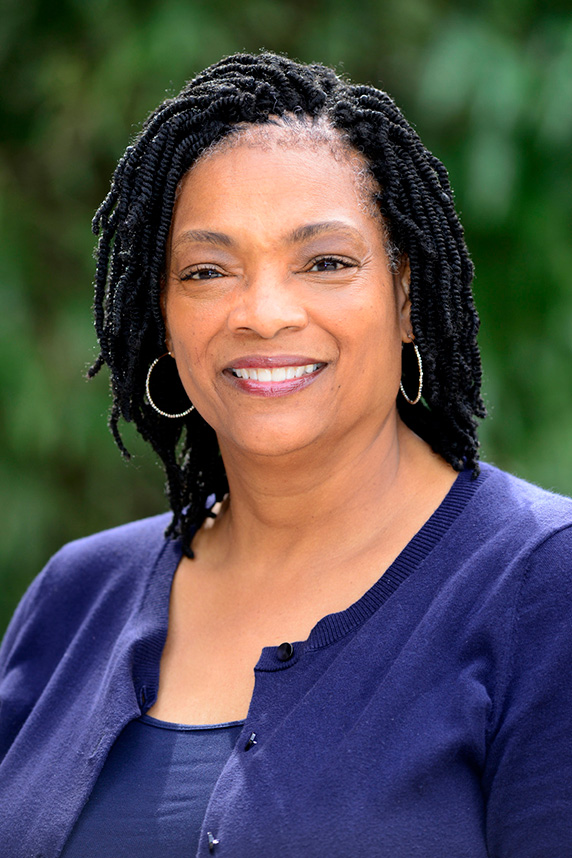 King-Herbert served three years on the ACLAM Board of Directors before being elected vice president. (Photo courtesy of Steve McCaw / NIEHS)
King-Herbert served three years on the ACLAM Board of Directors before being elected vice president. (Photo courtesy of Steve McCaw / NIEHS)“This year we are developing the college’s strategic plan for 2022-2027,” she said. In her future term as president, King-Herbert will ensure the plan is on track to fulfill its goals.
“We are very proud of Angela’s contributions to the laboratory animal medicine specialty and for being recognized by her colleagues for distinguished service as the Vice President of ACLAM,” said Sills. “Angela has pioneered new approaches for training and in 2017, she became the first woman and the first person of color to receive the prestigious ACLAM mentorship award.”
Founded in 1961, ACLAM is dedicated to advancing humane care and responsible use of laboratory animals by certifying veterinary specialists and sponsoring professional development. The group is active in training, outreach, and mentoring those in the laboratory animal medicine field.
(Marla Broadfoot, Ph.D., is a contract writer for the NIEHS Office of Communications and Public Liaison.)





